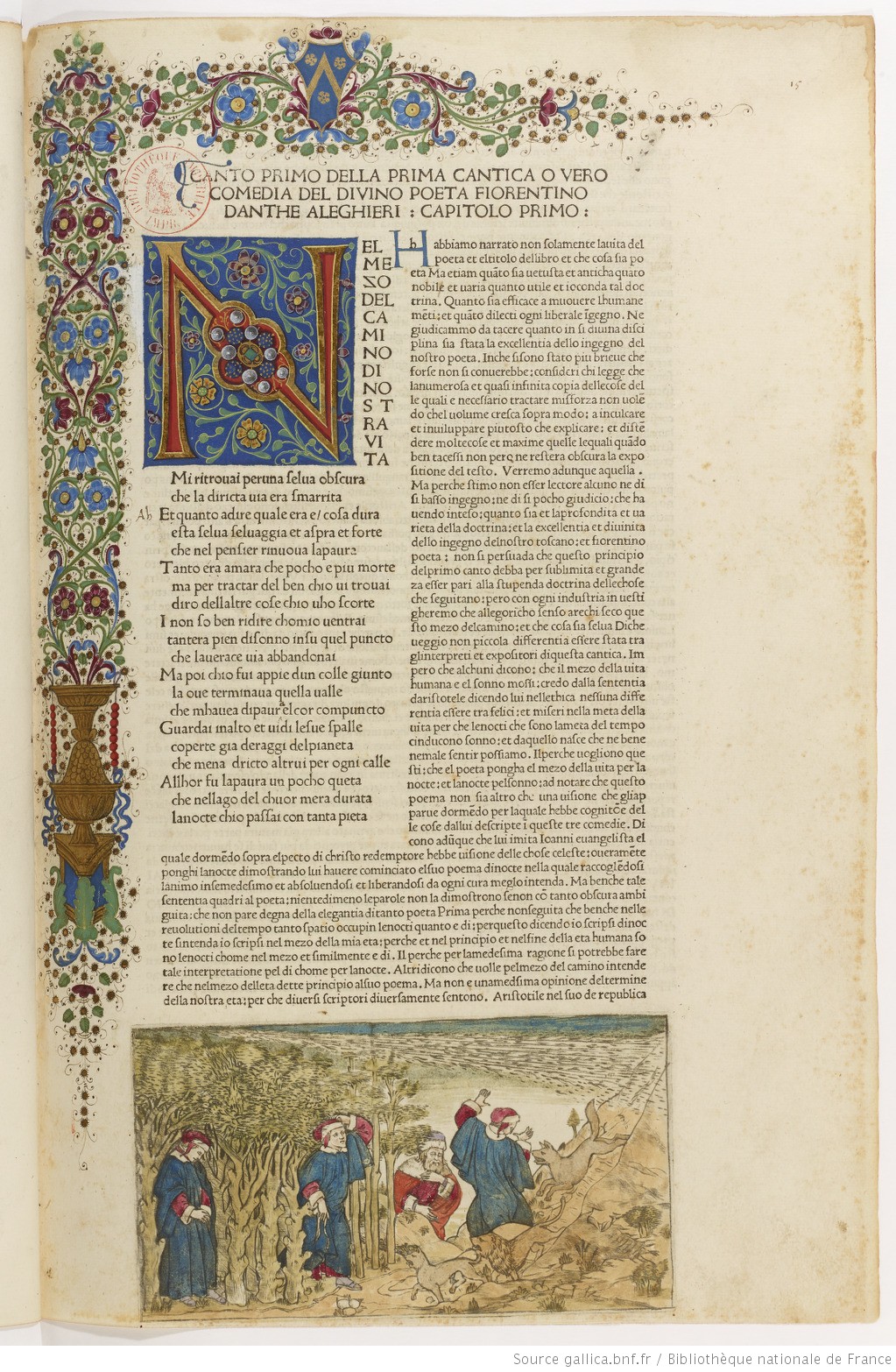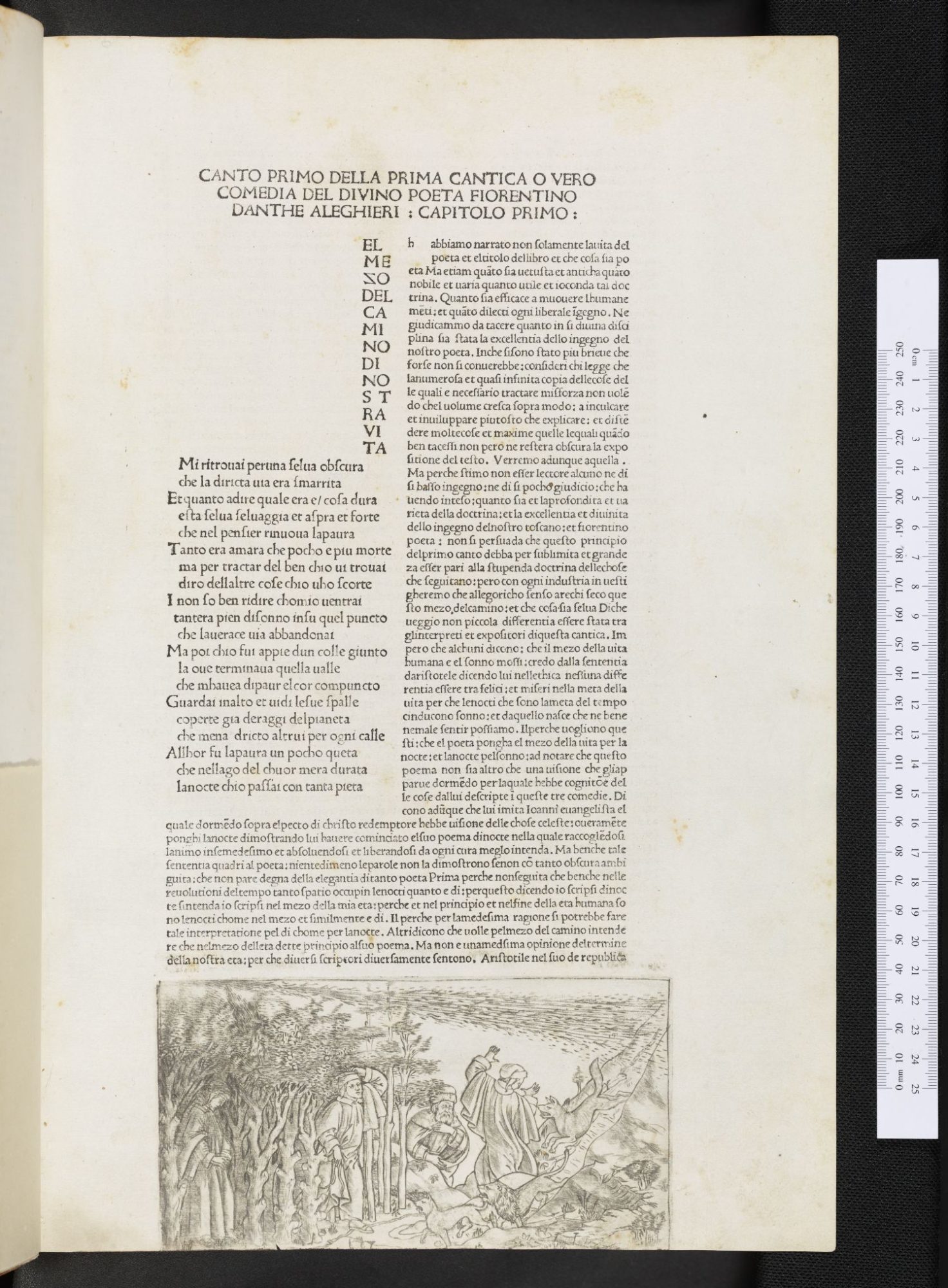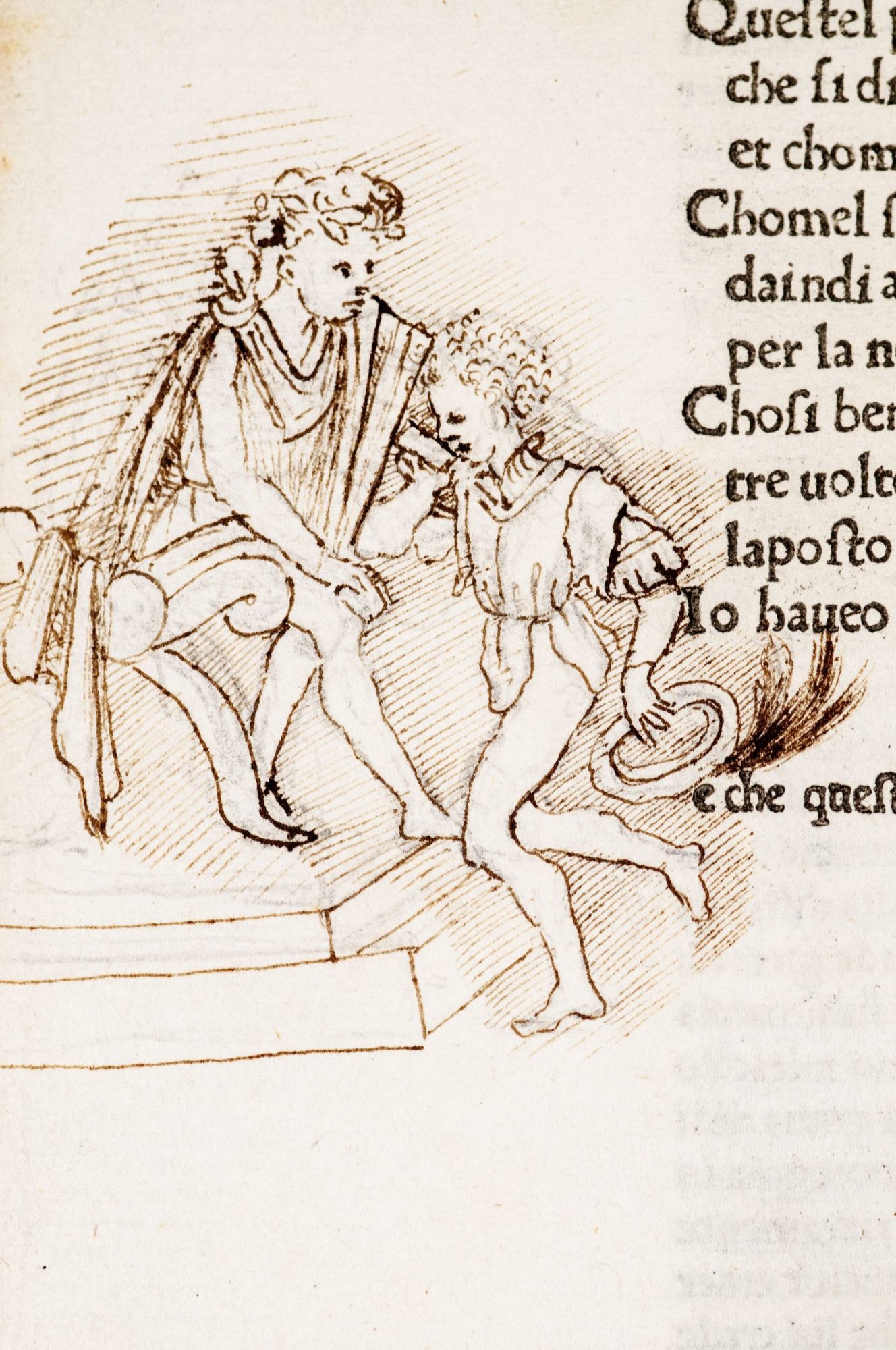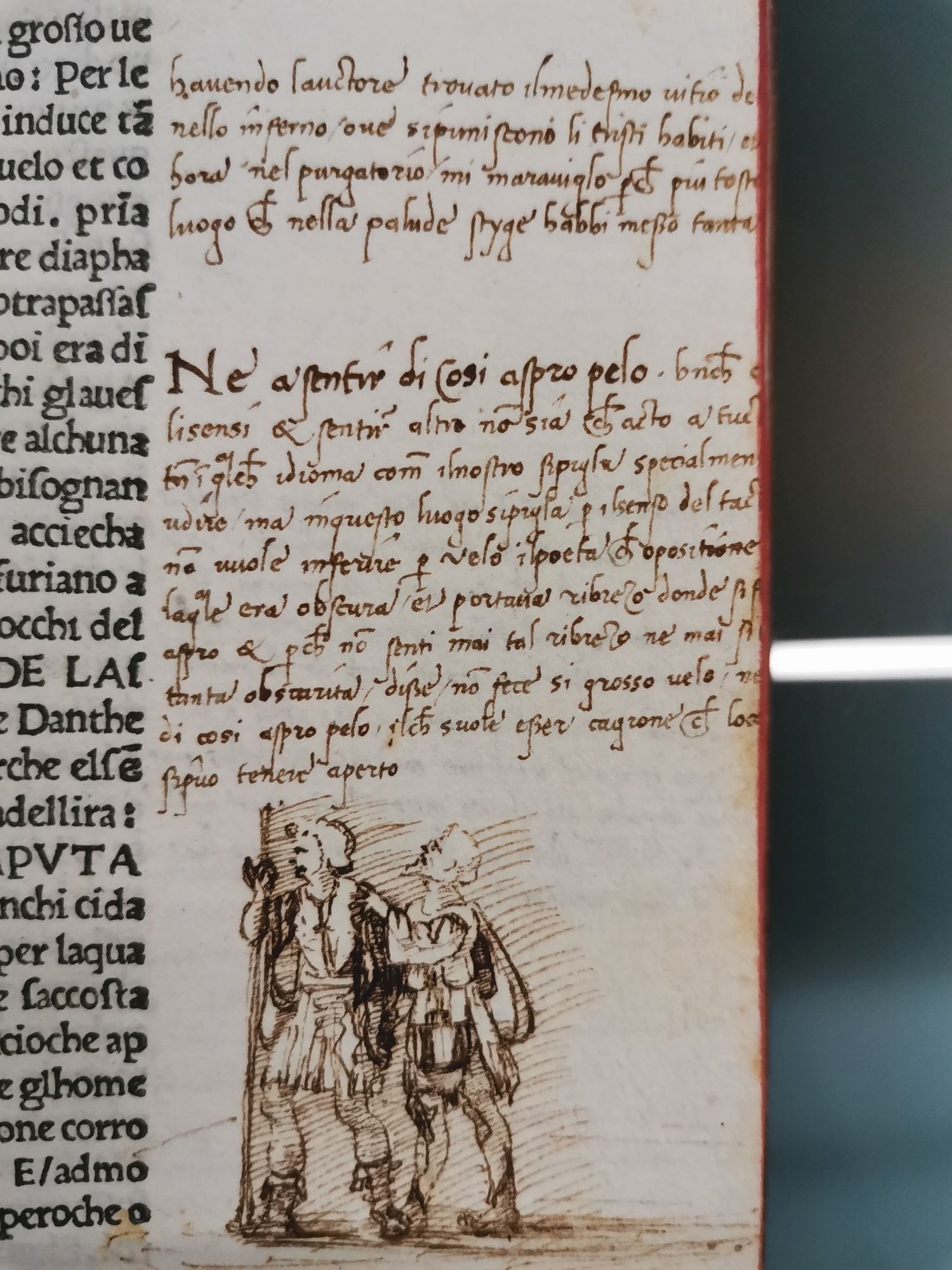Project details
The first illustrated edition of La Commedia was printed in Florence in 1481 by the German typographer Nicolaus Laurentii (Niccolò di Lorenzo ‘della Magna’). It contains 20 copper engravings attributed to Baccio Baldini from designs by Sandro Botticelli, to accompany the first 19 Cantos of the Inferno. 179 copies of this edition survive today, in 135 libraries around the world, from Tokyo to Minsk, from Athens to Los Angeles and Rio de Janeiro.
Funded by the Foundation, the Consortium of European Research Libraries (CERL) coordinated an illustrated copy-census of this edition. Each copy’s distinctive history was reconstructed by capturing and interpreting the marks left by its former owners – decoration, purchasing and ownership notes, annotations in the margins. Collectively, the stories emerging from these copies elucidate how this seminal work was read and commented on by its contemporaries, and by later generations.
The project website, in English and Italian, outlines the complex history of the edition and its remarkable engravings. A video brings together the engravings and the verses of Dante which inspired Botticelli’s creation. A second video discovers the first readers of the Commedia and how they annotated their books: from local distribution to global dissemination. An interactive map connects to the detailed descriptions and images of each copy, stored in scholarly digital resources.
The copy-census was carried out in Summer 2021, a period still constrained by the Covid-19 pandemic, and its success is a testimony to the spirit of collaboration of the many libraries involved.
A copy from the National Central Library in Florence was exhibited at the Italian Embassy in London at a November 2021 event marking the launch of the project website.
Links and downloads:
Webpage: https://www.printingrevolution.eu/dante-1481/
Video 1: Botticelli interpreter of Dante https://www.youtube.com/watch?v=mg5ifEsd17k
Video 2: The Readers of the Commedia https://www.youtube.com/watch?v=qfDf9R-QNHc
Interactive map: https://www.printingrevolution.eu/mappa/
Subject areas
Cultural heritage and digitisation
We support major libraries and museums in digitising and displaying the riches of their collections, to make them available to researchers and the wider public in innovative and attractive ways.
Humanities education and research
We support research in the humanities at significant academic institutions, educational initiatives to inspire young people about the humanities, and the broadening of educational opportunity.
Excellence and innovation in the arts
We support artistic heritage, the development of new creative work and the nurturing of young performers.




